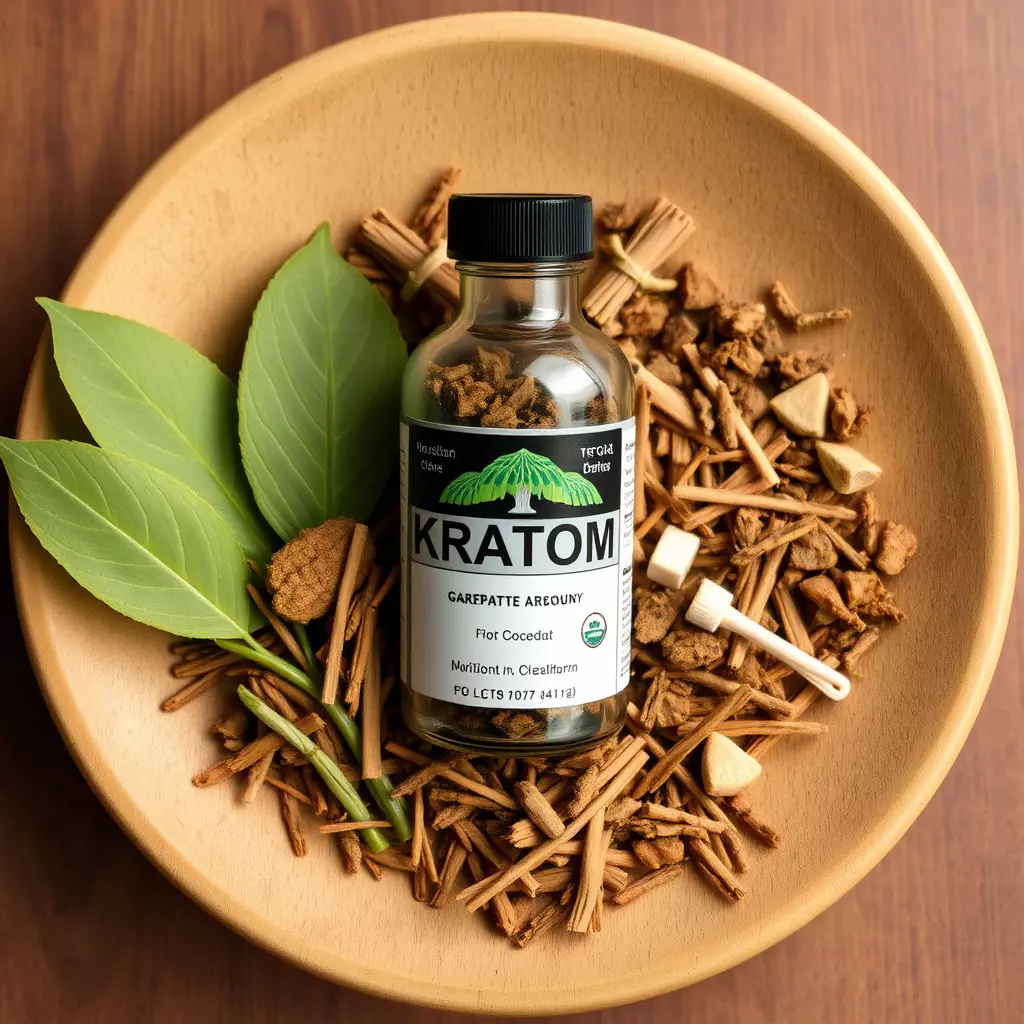Chronic Fatigue Syndrome (CFS) is a condition characterized by persistent fatigue and a range of symptoms including pain, cognitive issues, sleep problems, and decreased ability to perform daily activities. The causes of CFS are not well understood, necessitating a diagnosis after excluding other medical conditions. Kratom, derived from the Mitragyna speciosa tree, has been explored as a potential treatment for CFS due to its alkaloid profile that may offer pain and fatigue relief. However, the legal status of kratom varies by state, with Texas having a nuanced stance as of 2023: it is not explicitly illegal but falls under federal DEA jurisdiction, classified as a Schedule I controlled substance. In Texas specifically, kratom is categorized as a substance of abuse under the Texas Controlled Substances Act, yet CFS is recognized by the state's Health and Human Services Commission. This means patients must navigate its use carefully within the legal framework set forth by state regulations, which include vendor compliance with purity standards and third-party lab results for quality assurance. It is essential for individuals to consult healthcare providers before using kratom, to ensure safe and effective use as part of their CFS management plan while adhering to Texas law. Those considering kratom should start with a low dose, monitor their health outcomes, and adjust usage under medical supervision, all while being aware of potential interactions with other medications or supplements. Legal awareness is crucial for informed decision-making regarding the use of kratom in managing CFS symptoms within the state of Texas.
Chronic fatigue syndrome (CFS) presents a pervasive challenge, significantly diminishing quality of life for its sufferers. As we delve into the complexities of CFS, this article explores a potential management solution that has garnered attention: kratom. With its legal status in Texas under scrutiny—is kratom legal in Texas?—understanding its role within the realm of CFS treatment is crucial for those seeking relief. We will navigate the nuances of incorporating kratom into your health strategy while adhering to local regulations, offering a practical guide for Texans impacted by CFS. Join us as we explore the intersection of herbal management and legal considerations in managing this debilitating condition.
- Understanding Chronic Fatigue Syndrome (CFS) and Its Impact on Daily Life
- Exploring Kratom's Role in CFS Management: A Legal Perspective in Texas
- Practical Guide to Safely Incorporating Kratom into Your CFS Management Strategy While Navigating Texas Laws
Understanding Chronic Fatigue Syndrome (CFS) and Its Impact on Daily Life
Chronic Fatigue Syndrome (CFS) is a complex and often misunderstood condition characterized by severe, persistent fatigue that is not relieved by rest and affects all aspects of an individual’s life. The impact of CFS on daily functioning can be profound, with patients experiencing a myriad of symptoms including pain, cognitive impairments, sleep disturbances, and a significant reduction in the ability to engage in previously routine activities. The pathophysiology of CFS is not well understood, and it remains a diagnosis of exclusion after other potential causes have been ruled out. As such, managing the symptoms of CFS is crucial for patients seeking to maintain some quality of life.
In recent years, kratom, a plant-based product derived from the leaves of Mitragyna speciosa, has garnered attention in various health and wellness discussions. Kratom contains alkaloids that can influence the brain’s opioid receptors, potentially providing analgesic and stimulating effects. For individuals with CFS, these properties might offer some relief from pain and fatigue. The legality of kratom varies across different states within the United States; for instance, as of my knowledge cutoff in 2023, is kratom legal in Texas? In Texas, kratom is not explicitly illegal at the state level, but it falls under the purview of the DEA, which classifies it as a Schedule I controlled substance due to its opioid-like effects. This legal status adds a layer of complexity for patients considering kratom as part of their CFS management strategy. It is essential for those interested in using kratom to first consult with healthcare providers and stay informed about the evolving regulatory landscape surrounding this substance.
Exploring Kratom's Role in CFS Management: A Legal Perspective in Texas
In Texas, the legal status of kratom has been a subject of debate and regulation. As of recent updates, kratom is categorized as a substance of abuse under the Texas Controlled Substances Act. This classification has significant implications for individuals seeking to use kratom as part of their chronic fatigue syndrome (CFS) management strategy. The Texas Health and Human Services Commission has recognized CFS as a legitimate condition, and many patients are exploring alternative treatments due to the lack of definitive cures. Kratom, with its alkaloid profile that may influence mood and energy levels, is one such alternative therapy. It’s important for potential users in Texas to be aware of the current legal framework governing kratom use within their state, as it can affect their access to this substance. The Texas legislation requires careful consideration by both patients and healthcare providers, emphasizing the need for informed decision-making within the bounds of the law.
Navigating the legality of kratom in Texas is crucial for those considering its use as a component of CFS management. While some states have taken a more restrictive stance, Texas has positioned kratom within its controlled substances list, implying both accessibility and legal usage under specific guidelines. The Federal Drug Administration (FDA) has also flagged kratom for further study due to concerns about its safety and potential for abuse. As such, individuals in Texas interested in using kratom must stay informed about the evolving regulations and consult with healthcare professionals who can provide guidance within this complex legal landscape. Understanding the legal context of kratom use is a fundamental step for CFS patients exploring holistic treatment options in Texas.
Practical Guide to Safely Incorporating Kratom into Your CFS Management Strategy While Navigating Texas Laws
When considering the integration of kratom into your chronic fatigue syndrome (CFS) management strategy, it’s crucial to navigate its legal status in Texas. Kratom, derived from the leaves of the Mitragyna speciosa tree, has gained attention for its potential effects on pain and energy levels, which may be beneficial for individuals with CFS. However, before incorporating kratom into your routine, it’s essential to be aware that its legal status can vary within the state. As of the knowledge cutoff in 2023, kratom is legal in Texas but subject to certain restrictions and purity requirements. The Texas Department of State Health Services regulates kratom sales, mandating that vendors must ensure their products do not contain adulterants or contaminants.
To safely incorporate kratom into your CFS management plan while complying with Texas laws, start by consulting with a healthcare provider. They can offer guidance tailored to your health needs and monitor your response to kratom, ensuring it’s used as part of a comprehensive treatment approach. It’s also important to source kratom from reputable vendors who provide third-party lab results for product potency and purity. Begin with a low dose to assess its effects on your symptoms and gradually adjust as needed while under the care of a healthcare professional. Keep in mind that combining kratom with other medications or supplements can have unintended consequences, so maintain an open dialogue with your healthcare provider about all substances you are using. By staying informed about local regulations and proceeding with caution, you can explore the potential benefits of kratom as part of a holistic CFS management strategy within the bounds of Texas law.
In conclusion, chronic fatigue syndrome presents significant challenges to individuals’ daily lives, with a profound impact on overall well-being. This article has explored the role of kratom as a potential management tool for CFS within the context of Texas law, where its status is defined by specific legal parameters. It is clear that when used judiciously and in adherence to state regulations, some patients with CFS may find kratom to be a beneficial component of their treatment regimen. A practical approach to incorporating kratom into one’s health strategy must always consider the evolving landscape of its legality in Texas—a point that underscores the importance of staying informed on local statutes. For those considering kratom as part of CFS management, it is crucial to consult healthcare professionals and adhere to all legal requirements to ensure safety and efficacy.






